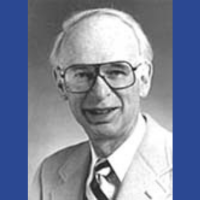
University of California, San Diego engineering professor emeritus Alan M. Schneider passed away on February 23rd, 2022, five days short of his 97th birthday.
Alan received his Sc.D. degree in the Department of Aerospace Engineering at MIT in 1957. He worked at the Instrumentation Laboratory at MIT and at the Aerospace Systems Division of RCA, where he was a senior engineering scientist and, later, manager of systems analysis. He joined UC San Diego one year after the formation of the Department of Mechanical and Aerospace Engineering. Among his professional distinctions, Schneider won the Samuel M. Burka Award of the Institute of Navigation for Work on the Space Rendezvous (1962), and the Community Contribution Award, San Diego Section, AIAA (1971). Alan touched the lives of many students in his work and earned the UC San Diego Teaching Award twice for the dedication he showed his students. He was passionately committed to liberal politics and worked tirelessly for environmental causes after co-founding the Clean Air Council of San Diego in the late 1960s.
His most recent research focuses had turned to the modeling of engineering and physiological systems and problems. Alan was working on a system for stroke patient rehabilitation with continuous passive motion. Limb spasticity remains one of the major rehabilitation challenges for stroke patients. Schneider's system consisted of a direct-drive brushless DC motor that powered the adjustable mechanical arm into which the patient's arm comfortably fit. The motor drove the robot arm under closed-loop feedback control using a digital computer as a programmable controller. The "robot arm" was a tool to make quantitative measurements of spasticity, thereby facilitating the assessment of spasticity-reducing therapies, including drugs, and the study of neuromuscular causes of spasticity. The initial commercial market would be in pharmaceutical companies and other research institutions, followed by full-scale production and sale to major rehabilitation clinics. A later development would be a smaller, lighter, cheaper version for home use by stroke patients. Schneider’s other research interests included the design of computer-controlled orthotic devices, automatic control of blood pressure during surgery, and the modeling of major physiological systems.
Alan was married for 56 years to his beloved wife, Marjorie Miriam Klitsner Schneider, whom he adored and who preceded him in death in 2005. He is survived by his loving children, David, Mitchell (Susan), Howard, and Sara; by grandchildren Nathan (Claire), Julia (Adam), Michael (Allison), Divya, and Arjun; and great-grandchildren Daniel, Sylvia, and Sydney; by dear friend Paula M. Liska; and by brother Robert (Vi).
